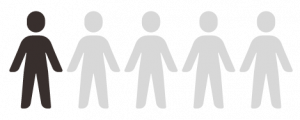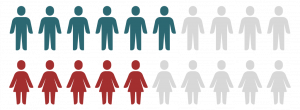The Universal Healing Journey
What does it mean to heal, or to be restored, or to overcome? We often hear these words when we talk about survivors of trafficking and their journey to living in freedom. It's the difference between surviving and thriving.
“To survive a horrific act is different than to heal from it. Surviving could mean that you are still living in that nightmare, but healing means you accept the nightmare but you don't let it define who you truly are and who you will become.”
Smey, Survivor and Abolitionist
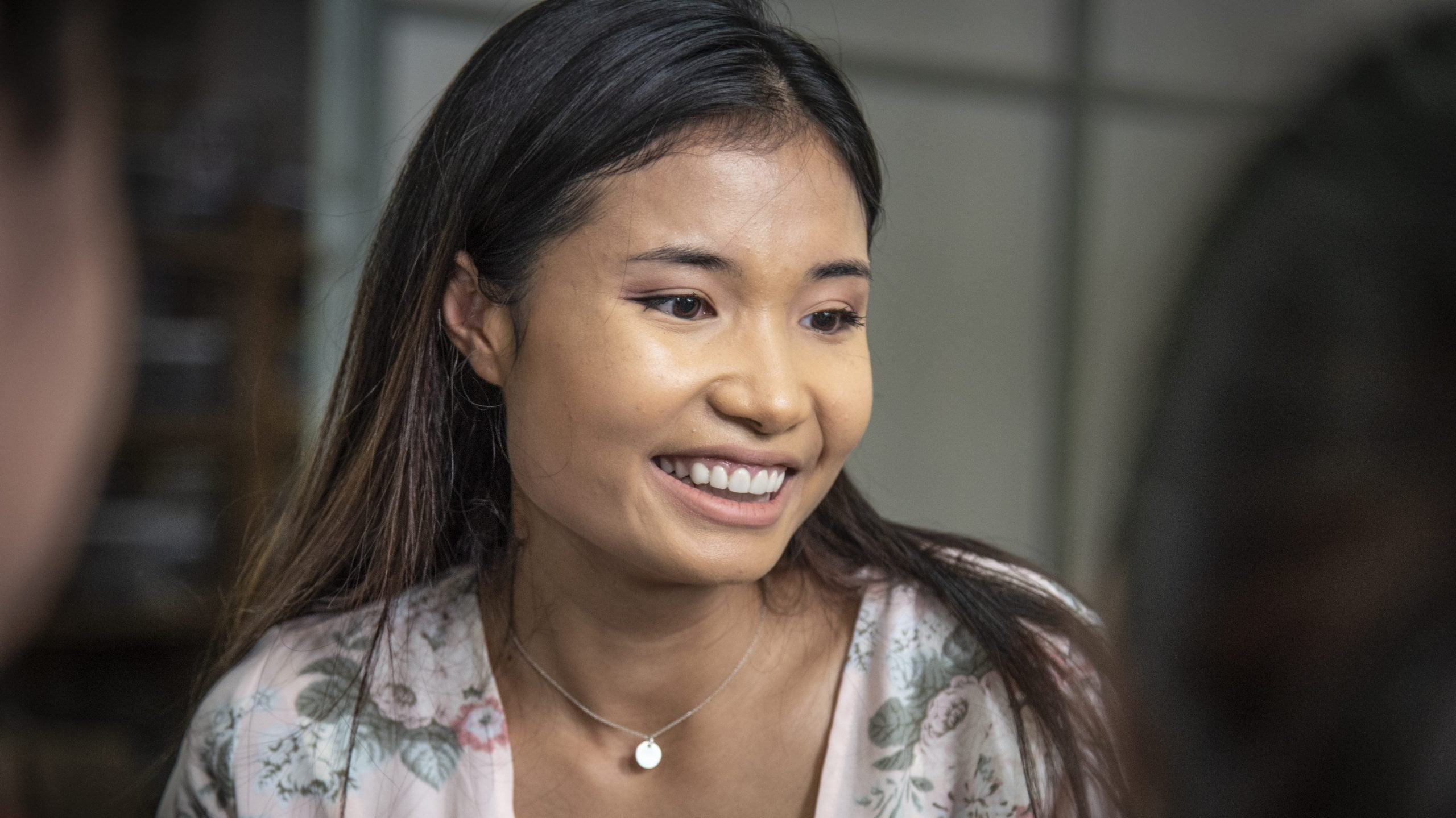
On the surface, these concepts can seem mysterious and unrelatable. While exploitation and trafficking are difficult to understand as “outsiders”, we can all relate to this need to heal, to overcome, or to be restored. As humans, we all experience pain, grief, and trauma.
In order to truly empathize, we need to relate the extreme experience of trafficking to something personal. While it may not be easy, if you are ready to dive in, I am ready to walk you through it. This will be a learning experience for us all. Because without empathy and a deeper level of understanding, our connection to the fight against trafficking can be superficial and disconnected.
Let me be clear, I am not minimizing the trauma survivors of trafficking suffer. I understand there are depths of trauma that I will never understand. However, what survivors need is often mysterious and rarely understood by others. It is vital that we remove the veil of mystery surrounding the healing, recovery, and restoration of these individuals. To do this, we need to look at how we are much more alike than we are different. On a universal level, we all have fundamental needs that we long to be met – love, purpose, and belonging. Let's approach this read with a mind open to our ability to empathize, despite our levels of trauma, our pasts, or our present situations.
Some Statistics
General Mental Health:
- 47.1 million people in the U.S. are living with a mental health condition (1 in 5, about 20%).1
- 40 million of these American adults are affected by anxiety disorders, 18.1% of the population every year.2
- Post Traumatic Stress Disorder (PTSD) is affecting 7.7 million adults in the United States (3.5% of the population).2
- An estimated 5% of adults worldwide suffer from depression (that's over 250 million people).3
Trauma:
- 6 in 10 men and 5 in 10 women are likely to experience at least one traumatic event in their lives. For men, this is commonly experiencing accidents, being physically assaulted, going to combat, experiencing a disaster, or witnessing death or injury. For women, it is more common to experience sexual assault in various forms.4
- About 8% of women and 4% of men will develop PTSD sometime in their lives.4
Learn more about human trafficking statistics here.
Statistics can be overwhelming and impersonal. Let me summarize – a lot of Americans (and people all over the world) experience – or will experience – some form of mental health condition over their lifetime. Additionally, many of us – in fact, a majority of us – will experience trauma at some point. Trauma is known to increase rates of anxiety, depression, and PTSD. Specifically, sexual trauma will increase these and more.5 The point is this: although we may experience different types of suffering, we can relate more closely than we might think to those who experience the trauma of trafficking.
Take this story for example
A young college student is finding her footing at a new school and in a new life. She dives head first into ministry in an attempt to shield herself from a longing and temptation to experience “more”. Still, she thinks to herself, “But, I need to find my own way and experience life!” A voice in her head taunts, “You are so naive, you will never know the goodness and light of God if you don't experience some of the darkness.” Soon enough, this voice takes over and the ministry that she once loved becomes a nuisance. So she makes a hard turn, down a road of “fun” and “excitement”, being lured by the darkness in a faux journey to find light. Harmless weekend parties become weekday binges, bringing with them romances of strangers who fill a longing to be loved, if only for a surface-level, physical moment. But now, the voice has changed. Its taunts are no longer encouraging this life, but ridiculing and shaming. “You know better than this. You can't believe you are actually worth anything to any of these people. You are nothing.” This voice is mostly in her head, but every once in a while similar phrases are spoken out loud. “This is why you quit ministry, to be a party girl?” In response, she spirals. She turns to self harm in an attempt to find some control and bring an end to pain that she can't place. She tells herself, “Slap a bandaid on the arm and keep going. Because the issue isn't the partying, it's sitting still. Just keep going…”
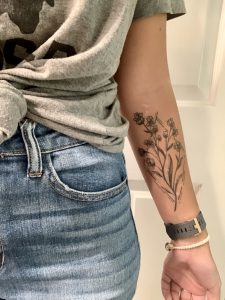
When trusted friends and mentors encourage her to finally sit still, she slowly confronts the darkness for what it is. A quieter voice replaces the ridiculing and taunting one. Now that she's sitting still, she can hear it more clearly – “I love you because I love you because I love you… be loved.” Accepting this is harder than sitting still. But as people are placed in her life that show her the grace and love that she needs to show herself, she starts to believe it. Counseling and processing and writing help her listen to the quiet voice, even when the taunting returns. This healing, from the outside, might not look like much. She's still fun and exciting (at least she hopes). There wasn't a light-switch moment of change, but she is grounded in a Truth that outweighs the pains of this life.
I can tell this story because I know this story – it's mine. We all have our own. And according to those statistics above, many of them include trauma of some sort. For some it might be similar to mine – self inflicted or self imposed – unintentionally creating this hole you need to dig yourself out of (with help and grace, of course). Other stories might be out of our control. A lost pregnancy, an accident, an illness, or a disaster… None of us are immune to the tragedies that exist in this world. It is HEAVY. Why are we focusing on all the hard stuff? Because it emphasizes the fact that we are all humans living in a sin-ridden world. So where is the resolve? When does the melancholy melody change keys to become a joyful chorus of praise? Pardon the cliche, but it comes with Jesus.
We need healing – whether it's from ourselves and our own mental health or from the things done to us. Many of us would benefit from the counsel of a therapist or medical professional. Some of us need medication. ALL of us need the healing, relentless love of Jesus. We are ALL invited into this relationship and each day we get to choose to be loved by Him, as we can love Him in return. This process takes work – to sit and understand ourselves and our place in this world. You are important. This is important. When we do work through our own trauma and sin, we get to empathize with and love others. We are all on a healing journey. The journeys often look different, but we are all on them nonetheless.
How is all of this relevant to you and me? Why is this important in our fight against trafficking? Christina, my colleague and survivor of trafficking told me, “when we do outreach to victims, people are often surprised that they are just like other 20 year olds.” We need to demystify the belief that they are not like other people. Their healing journey is not that much different than many others who are healing from trauma. Those three universal needs are the same for all of us. We long to be loved, to belong, and to have purpose. The fact is – we are all much more alike than we are different.

About the Writer:
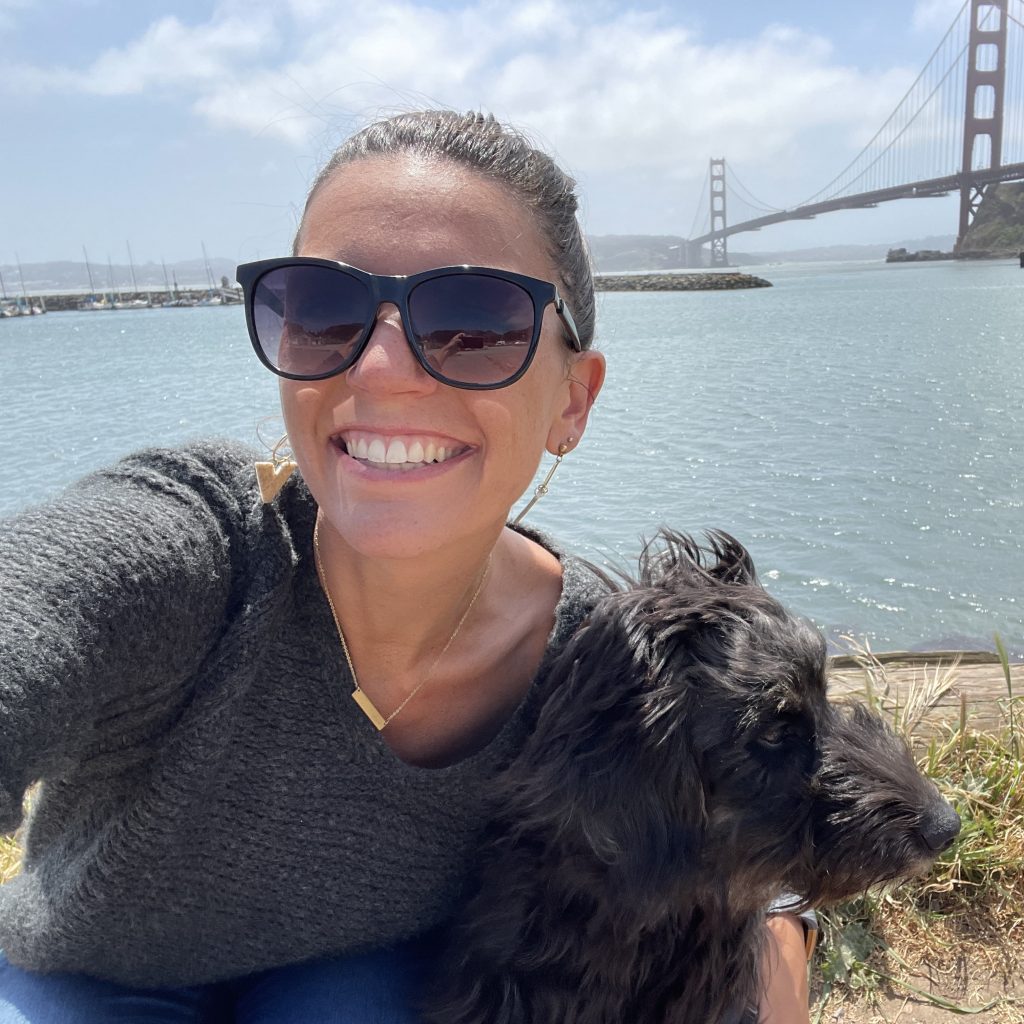
Erica Smith – Content Marketing Lead for AIM
Originally from Ohio, I moved to Cambodia in 2019 to work with AIM. Since then, I moved to the US Headquarters in California where I manage web, social, and written content.
My dog, Watson, and I are passionate about walks, coffee, mental health, and the fight against trafficking. I hope, in sharing a glimpse of my story, I can encourage others struggling with depression to find help and hope. You are loved and cherished more than you could ever know.
Resources:
If you or someone you know is contemplating suicide, there are resources and people who care for you. Talk to someone at 800-273-8255 or visit this site.
If you or someone you know is a victim of trafficking, reach out to the human trafficking hotline at 888-373-7888 or visit this site.
For more information about anxiety and depressive disorders check out the Anxiety and Depression Association of America.
References:
2. https://adaa.org/understanding-anxiety/facts-statistics
4. https://www.ptsd.va.gov/understand/common/common_adults.asp
5. In the United States alone, there is an average of 463,634 victims of rape or sexual assult each year (ages 12 and older). (Department of Justice, Office of Justice Programs, Bureau of Justice Statistics, National Crime Victimization Survey, 2019 (2020).)
94% of women who are raped experience symptoms of PTSD during the two following weeks. 33% of women who are victims of rape consider suicide. (DG Kilpatrick, CN Edumuds, AK Seymour. Rape in America: A Report to the Nation. Arlington, VA: National Victim Center and Medical University of South Carolina (1992).)
Freedom. At All Costs.
Human trafficking in any form is absolutely unacceptable. At AIM, we rescue, heal, and empower survivors of slavery to be free.

This “Eyes on Trafficking” story is reprinted from its original online location.

ABOUT PBJ LEARNING
PBJ Learning is a leading provider of online human trafficking training, focusing on awareness and prevention education. Their interactive Human Trafficking Essentials online course is used worldwide to educate professionals and individuals how to recognize human trafficking and how to respond to potential victims. Learn on any web browser (even your mobile phone) at any time.
More stories like this can be found in your PBJ Learning Knowledge Vault.
EYES ON TRAFFICKING
This “Eyes on Trafficking” story is reprinted from its original online location.
ABOUT PBJ LEARNING
PBJ Learning is a leading provider of online human trafficking training, focusing on awareness and prevention education. Their interactive Human Trafficking Essentials online course is used worldwide to educate professionals and individuals how to recognize human trafficking and how to respond to potential victims. Learn on any web browser (even your mobile phone) at any time.
More stories like this can be found in your PBJ Learning Knowledge Vault.

